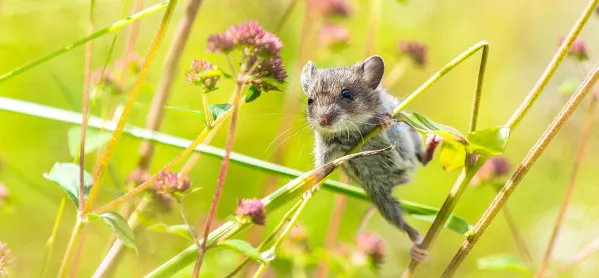- Home
- Teaching & Learning
- General
- 5 ideas for Scottish schools to explore on World Poetry Day
5 ideas for Scottish schools to explore on World Poetry Day

This year’s World Poetry Day carries the theme of “Standing on the Shoulders of Giants”, recognising the creative and cultural influence of innovative poets from the past. The idea is that modern writers have a debt of gratitude to those who came before.
This message can translate smoothly into a school context. Many teachers are thankful for the groundwork laid by our predecessors; pupils can be inspired by the role models they see in their own lives, at home and elsewhere. As with all these special days in the calendar, a bit of forward planning and strategic thinking can help to make a lasting impact.
Here are some things that Scottish schools, in particular, might consider:
1. Trip to see and hear poetry in real-world context
Poetry is most powerful when it is performed; after all, it comes from the oral storytelling traditions, leaning heavily on rhyme, enunciation, rhythm and voice. In class, it can be challenging to capture that spark with our PowerPoints and highlighter pens. Nothing beats the impact of hearing a poet read out their own work.
Luckily, Scotland is blessed with a vibrant and eclectic scene of live poetry performances - grassroots events run by people who write poetry in the real world. If you can arrange a school trip, you are likely to be warmly welcomed. This kind of access to real poets can remove some of the misconceptions that pupils have about poetry - it is not, in fact, an academic pursuit, or something old and stuffy.
- Consultation: What Scottish literature should be studied in upper secondary?
- Related: How poetry can transform your school
- Assessment: “Poetry is not just for exams”
2. Appoint a school makar/poet laureate
It is common for schools to appoint pupil leadership positions as a way to establish responsibility and create role models. Literacy captains or subject-specific prefects are useful. But what about crowning a pupil as the school’s makar or poet laureate? This would require a senior pupil with enough time, talent and confidence to share their work readily with the school community.
Wouldn’t it be fantastic for a school’s makar/poet laureate to write verses commemorating those special moments in the school calendar? Graduations, sports days, nativity plays - and all the rest of it - could become the subjects of a makar/poet laureate’s craft. The work could be shared online, in newsletters and whole-school assemblies.
3. Scottish poets
Recently, the Scottish Qualifications Authority has begun consulting teachers and pupils over a long-overdue refresh of the Scottish set text list for National 5 and Higher. Whatever the merits and missteps of this paper, it is useful to look at the poets currently featured.
While stalwarts like Liz Lochhead and Carol Ann Duffy will surely remain in situ, I have heard some teachers advocating for the removal of more traditional picks, such as Norman MacCaig and Robert Burns. And where are the new, up-and-coming writers on this list? What makes a writer “Scottish” anyway?
I would advocate learning about your local poets, who write about the same society, neighbourhoods and experiences that your pupils already know about - whether that be urban, rural or somewhere in between.
4. Poetry vandalism
As well as studying poetry, World Poetry Day is a fantastic opportunity to stimulate creative writing. One activity I use to encourage pupils to engage with their local area is “poetry vandalism”. Essentially, pupils write poems based on places within their communities - a poem about a bus stop, or a supermarket or a playpark - some sort of local landmark.
Once the poems have been workshopped and developed in class, the pupils are then challenged to take a printed copy of their work and leave it in the place that inspired it, to be picked up by members of the public, discussed and passed on. This level of engagement - and slight subversiveness - tends to motivate pupils to produce work of real merit.
5. Partnership working
We are blessed in Scotland to have a wide range of opportunities for partnership working, and for World Poetry Day, I would point towards organisations such as the Scottish Book Trust and the Scottish Poetry Library. Their websites have the resources, materials, lesson plans and videos to bring poetry into the classroom all year round. The book trust’s “live literature author directory” enables teachers to invite poets in to schools to deliver workshops and performances for pupils.
I would always encourage teachers to look beyond the bubble of what has commonly been taught, and find new writers and new work to engage with - perhaps through magazines such as Poetry Scotland, The Dark Horse and Gutter.
Alan Gillespie is principal teacher of English at Fernhill School, an independent school near Glasgow. He tweets @afjgillespie
For the latest Scottish education news, analysis and features delivered directly to your inbox, sign up to Tes magazine’s The Week in Scotland newsletter
You need a Tes subscription to read this article
Subscribe now to read this article and get other subscriber-only content:
- Unlimited access to all Tes magazine content
- Exclusive subscriber-only stories
- Award-winning email newsletters
Already a subscriber? Log in
You need a subscription to read this article
Subscribe now to read this article and get other subscriber-only content, including:
- Unlimited access to all Tes magazine content
- Exclusive subscriber-only stories
- Award-winning email newsletters



